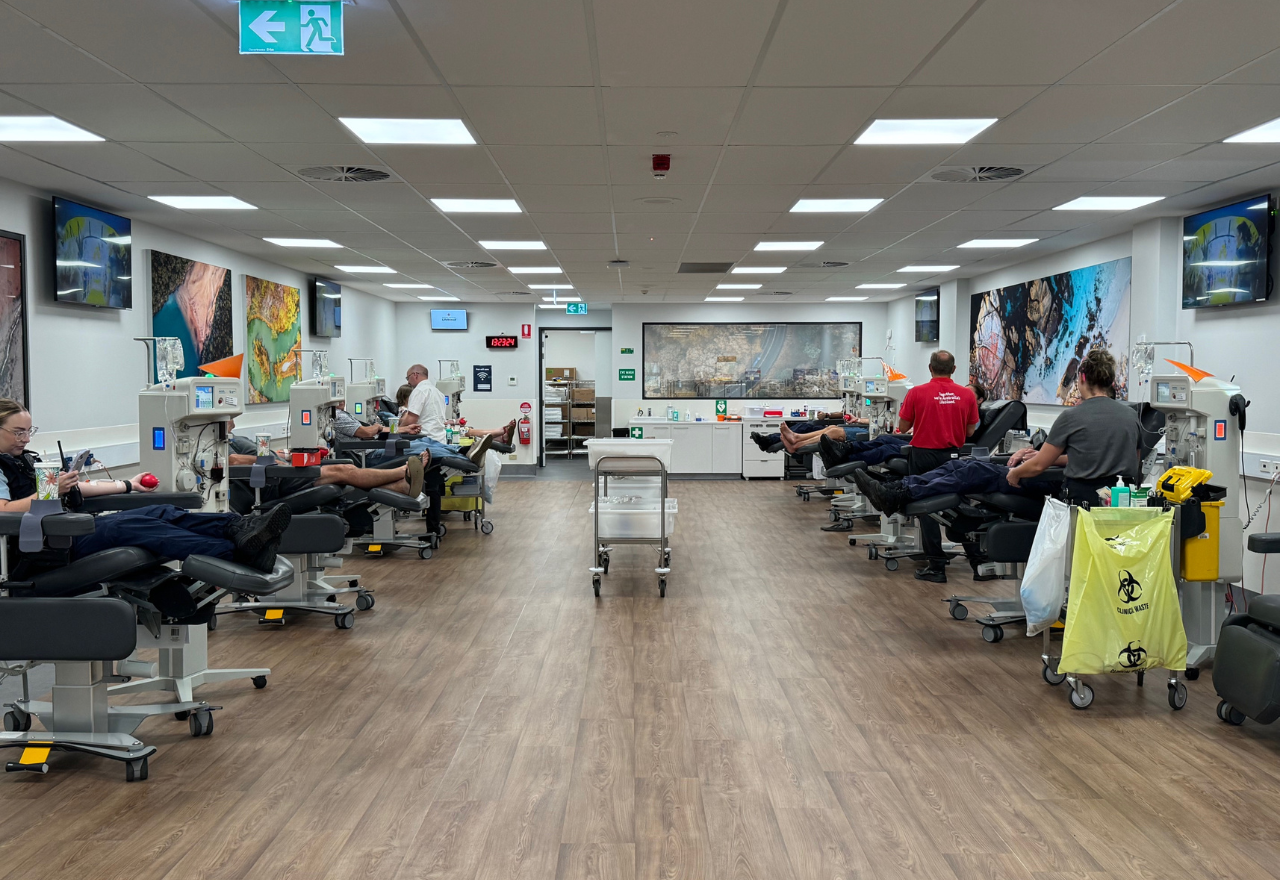Cancer survivors can donate blood and plasma after rule changes
29 July 2025, 12:27 AM
 The Lismore Donor Centre on Bountry Street
The Lismore Donor Centre on Bountry StreetAustralian Red Cross Lifeblood is implementing significant changes to its donor rules, which are expected to substantially increase the number of blood and plasma donors, making the donation process more accessible to a broader population.
Last month, Lifeblood announced it was removing most sexual activity wait times for plasma donations for gay and bisexual men and transgender women who have sex with men. This month, the rule changes surround cancer patients.
People who have fully recovered from many cancers can now donate blood and plasma in Australia 12 months after finishing treatment.
Those who have had cancer will no longer have to wait five years to donate, provided they have written confirmation from their doctor that they are in remission and meet all other health criteria. Those who have had blood cancers will continue to be unable to donate.
A recent survey by the Kirby Institute, UNSW revealed that over half (54%) of the population believed having cancer made people ineligible to give blood for life. Another 28% of the population were unsure, highlighting a large misconception that could be hindering donations.
Lifeblood Executive Director Cath Stone said the change would provide a greater opportunity for those who have had cancer to safely give blood and plasma while strengthening Australia’s blood supply at a time of record-high demand.
“Cancer patients are the largest users of blood in Australia; they need 11,000 donations each week. Many cancer survivors have relied on blood transfusions and plasma medicines during chemotherapy or surgery, and we know many are eager to give back,” Cath said.
Lifeblood research found that the current five-year wait can be safely reduced to 12 months, with international evidence showing it’s not necessary for donor or patient safety. Large-scale studies have confirmed that cancer is not transmissible through blood transfusion.
As with all changes to blood donation rules, this change has been approved by the Therapeutic Goods Administration (TGA).
“Cancer diagnoses usually increase with age, and our older donors often have more time to donate.
“Our current five-year wait-time disproportionately affects them being able to give back when it’s safe to do so,” Cath added.
On average, more than 5,000 potential donors are asked to wait to donate every year due to a cancer diagnosis, a number that has been increasing every year. Donors are less likely to return after long wait-times.
All donors will continue to undergo standard health checks and complete a detailed questionnaire. Only those who are well and meet all eligibility criteria will be able to donate.
Cath said that it was likely that many Australians didn’t realise the role blood donation played in supporting people with cancer.
“As we see the number of cancer diagnoses increasing, we’re also seeing an increase in the demand for blood to help cancer patients through their treatment. Supporting people with cancer is one of the greatest reasons to donate,” she added.
Donated blood is used for:
- 34% goes to people with cancer and blood diseases
- 19% goes to people with other causes of anaemia
- 18% goes to surgical patients (including open heart surgery and burns)
- 13% other medical problems(e.g. heart, stomach and kidney disease)
- 10% goes to orthopaedic patients (including fractures)
- 4% goes to pregnant women, new mothers
- 2% goes to trauma patients, including road accidents
To find out about donating blood, plasma, or platelets, call 13 14 95 or visit lifeblood.com.au.

